I reached Thailand a few weeks ago to challenge myself to learn Rock Climbing. Also, I wanted to explore whether this intense sport had any career lessons.
You can read about what this challenge meant here .
For two weeks I hung out with a multi-national, multi-skilled group with whom I learnt rock climbing. It was soon clear that I was not wrong about rock climbing providing career tips.
Here are 12 lessons on aiming for the top, rock-climbing style!
1. Your Life, Your Goals
It is easy to have unrealistic expectations looking at others. Evaluation of your own strengths and weaknesses is important. In rock climbing you have to create goals to your own intrinsic ability & desire.
In your career too, have a rock climber’s approach. Choose goals linked to your intrinsic desire and ability. Stay away from becoming a subconscious slave to others’ achievements or abilities.
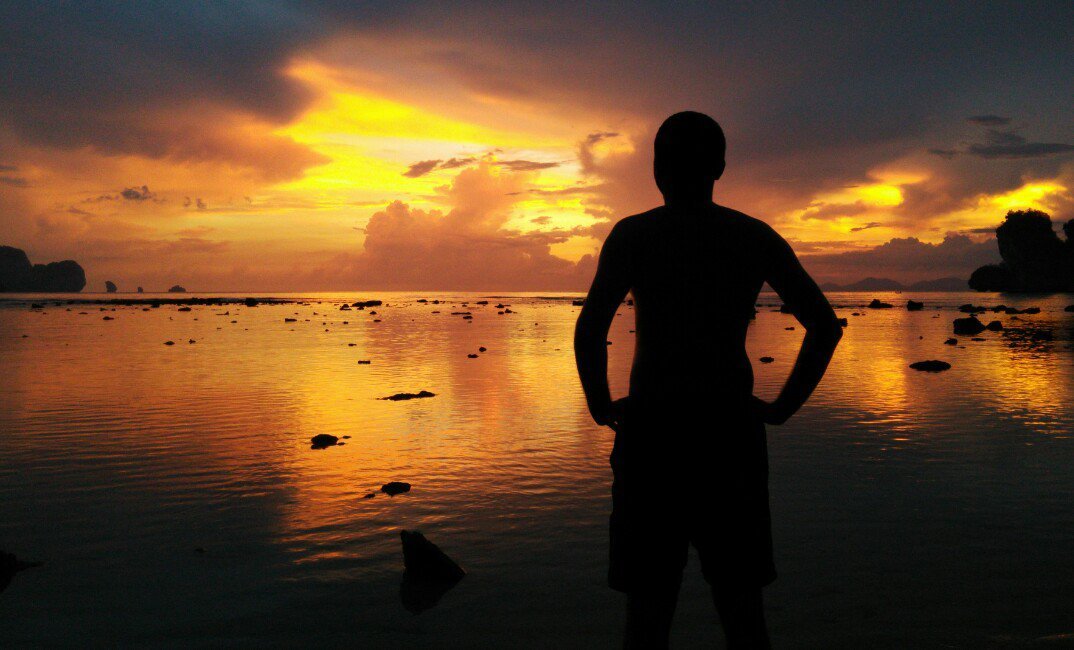
2. G oal Setting Determines Success
Most rock climbers are always trying to improve their level. They go from relatively easier climbing routes to the tougher ones. That only happens because of goal setting.
Similarly, the best way to build a career is to have goals. It is important to have an idea where you want to reach in x no. of years and then break it down into short term goals.
Like becoming a legendary rock climber, building a fabulous career is a long term process. It is only goal setting that actually helps you make more than just default progress.
3. Trust is Key
Rock climbing is a social sport and even a team activity. While you climb, someone belays you. That is the person who is holding the rope to your safety.
You need to trust both the rope and the belayer. If you don’t, your time is spent worrying rather climbing.
Similarly at work, you need to be able to trust your team. If you aren’t able to trust your team, then do something to change that or quit that team. Lack of trust does not work in anyone’s favor.
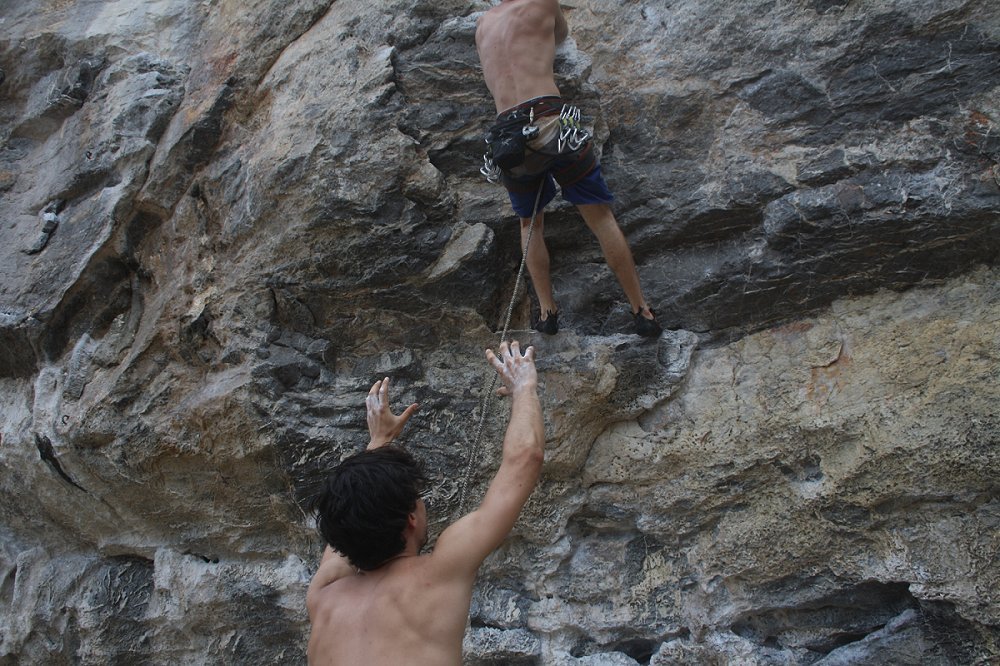
4. Overcome the fear of falling
Tobi, my rock climbing mentor, said that fear of falling delays or even stops your ascent.
Isn’t it true of work and even life? After a point we start fearing failure. This results in slowing down. We feel there is so much to lose that we’d rather just hold on without moving.
But you always have the rope and the belayer(partner) to keep you safe. In the career context, isn’t it true that our real anchors are family and friends? A failure is not going to be the end of your life.
But if you do not take a risk, the sure shot consequence is failure anyway.
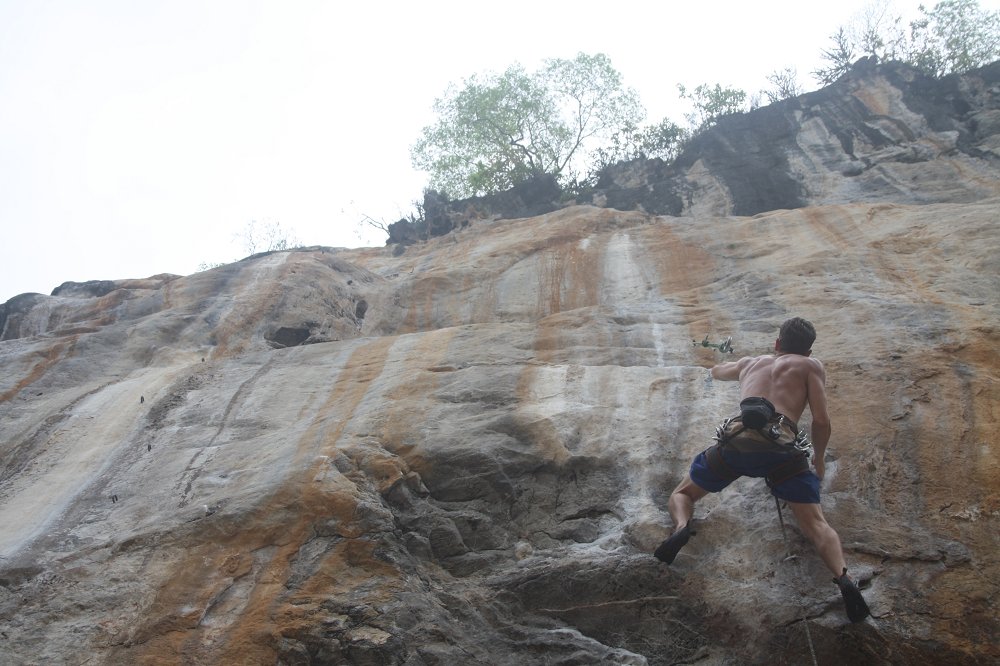
5. Over-thinking drains you
In the first few days, I would climb a couple of metres and then start planning. Then scrap the plans in my head and make other ones. Finally, I would get exhausted and give up.
So rather than working to my advantage, overthinking was stalling me. It is a common mistake all of us make.
We keep thinking about the future or brood over the past for way too long. This takes time away from action.
If you have a thought or a plan – action it NOW. Because you will have to refine it as you go along anyway.
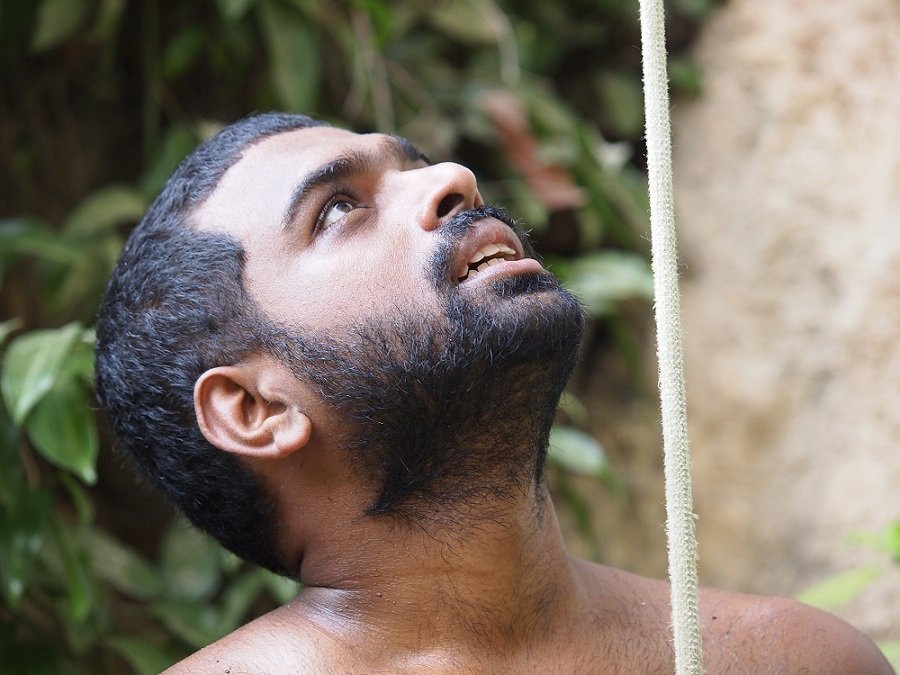
6. Determination Overcomes Failure
Like there is no permanent success, there isn’t permanent failure either. This fact is far more apparent while climbing.
It is only your determination that directs the outcome.
Most rock climbers fall multiple times before they actually climb a difficult route. Contrarily, most of us take failure too seriously. The fact is, even if we fail, our determination can help us put that behind in no time.
All failure means is that we need to change our strategy, work on our weaknesses or we simply need a break.
7. Stay on your toes
Rock climbers will tell you that staying or resting on your toes is the best way to get a good grip, rest and conserve energy.
So staying on toes is good while rock climbing. Similarly it is a good thing in work life as well. But, at work it means that you don’t take things for granted and step out of your comfort zone regularly. Because before you know it smarter career climbers will overtake you if stay too relaxed for too long.
8. Choose a mentor
The unsung character of rock climbing is the belayer. It is the person holding the rope and guiding the climber.
The belayer takes significant responsibility for the climber’s safety, yet does not intend to control the climb in anyway. In my mind, that is the role a mentor plays in your career.
It might be a good idea to seek game-changing mentors and then invest in the relationship
9. Resting is equally important
Everyone who is into climbing takes a rest day after every two-three full days of climbing. That is how most climbers build their muscles, reinvigorate their spirit and thereby improving their level.
You may feel you are getting ahead by working long hours, staying connected even on breaks. But you are not, because it will cause a burn out in the long term.
New ideas, new energy and new conviction come with mindful resting. Most top performers respect rest as much as they respect work.

10. Blood, sweat and tears
It is common to see many rock climbers with bruised fingers, dripping sweat or with moist eyes.
The blood, sweat and tears might seem extreme, but later you realize that it is part of the sport. None of it is detrimental to your body or otherwise.
The career journey is pretty much the same. There are disappointments, frustrations and set-backs. But it is all part of the career game and we should be able to accept it and may be look back and laugh at it.
11. Community helps
Rock climbers are a community. This aids learning & gives climbers a sense of belonging.
It is a great idea to be a part of a community that might aid your career too.
My experience with Toastmasters – a leadership & communication community has been a life & career enriching one (just in case you are looking for ideas).
12. Climbing is not everything
Passion is important and so is the desire to get better. Most good climbers are not just that; they have other facets & interests too.
Likewise, it is important to develop other facets of your personality even if you have only one passion (and assuming that is your career). Otherwise you might be great at work, but without any real relationships outside of it. That will make you spend even more time at work and the vicious circle will continue.
I have one ready suggestion for you: Rock Climbing.
About the author:
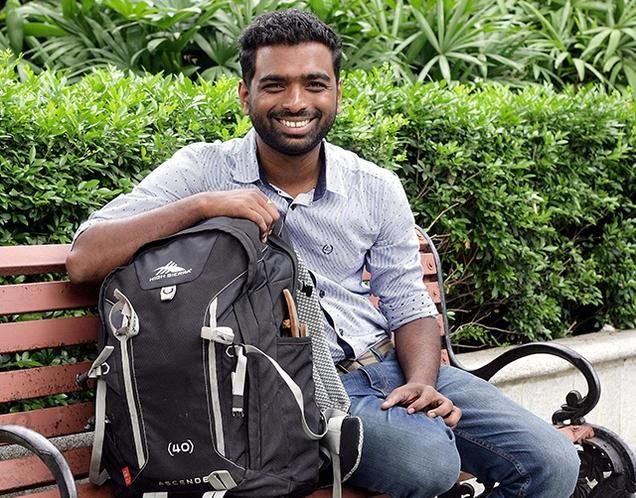
Sachin Bhandary, The Odd Traveller, has taken a year off and made travelling his mission. He believes that travelling is a fantastic learning opportunity and is out to prove as much by setting examples! Reach out to him through his blog , Facebook and Twitter . Happy travelling!

















